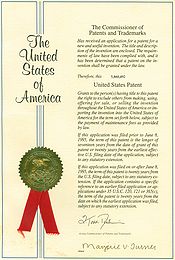Part II of a four-part series of blog posts covering intellectual property and board games.
So I invented a new game. Now what?
In the past, game inventors had a difficult time getting their games to market. They often had to invest in expensive prototyping and playtesting only to come up with a proposal that the main board publishers felt were not mainstream enough to justify a production contract. Today, crowdfunding websites like Kickstarter have given any board game developer with a great idea and an ardent following the means to bring their game to market. But there is always the worry “What if I tell someone about my great new game and a big publisher  steals my idea?” Fortunately, there are several steps you can take to protect your board game. These include non-disclosure agreements, trademark protection, copyright protection and, in some instances, even patents.
steals my idea?” Fortunately, there are several steps you can take to protect your board game. These include non-disclosure agreements, trademark protection, copyright protection and, in some instances, even patents.
Whether you choose all or none of these protection strategies will depend on the type of board game you created, your business strategy, how various types of intellectual property protection fit into this business strategy, and the amount of money you have to devote to intellectual propriety protection. Whether you have a lot or a little money to spend, it is a good idea to contact a patent attorney early on for a free consultation. This early meeting will give you an idea of the various protection strategies available and the time and money involved with each. Meeting with an attorney early allows you to make longer term plans for raising money and protecting your board game down the road.
So what are the benefits of protecting the intellectual property in your board game? First, while non-disclosure agreements, patents, trademarks, and copyrights may not protect all of the mechanics in your new board game, or even the general concept of your new game, they will allow you to take legal action against anyone infringing the intellectual property you have protected, including anyone marketing a direct knock-off of your new game. Second, protecting your intellectual property will reduce the likelihood a competitor or a large board game publisher will steal your board game out from under you in the first place. Third, if you eventually decide to sell or license the rights to your board game, it will be easier to get a buyer interested, and likely increase the purchase or license fee, if the buyer knows they are buying a well-protected board game.
Next up: Part III
I have protected all of my intellectual property. Am I in the clear now?





Recent Comments